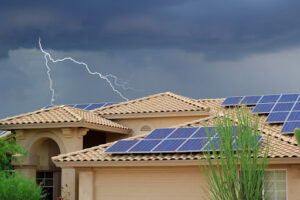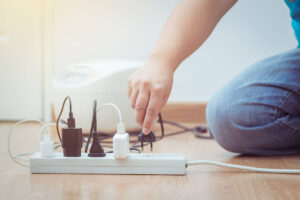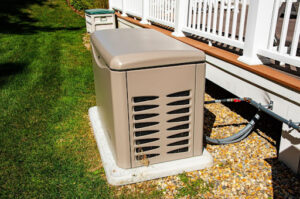
What to Do After Your House Is Struck by Lightning
Lightning strikes can be a terrifying experience for any homeowner. The powerful boom and bright flash are unmistakable, leaving you to wonder about the safety
To many homeowners, the electrical panel is an intimidating piece of equipment only touched when there is a circuit blown or a power outage. Even in these instances, many people are afraid to touch them at all. But it’s important to understand the basics of your electrical panel – especially if your home is older and the panel is experiencing problems. Also called the “breaker box,” it is the heart of a home’s electrical system – and sometimes needs to be replaced because of age or size.
At its most basic level, the electrical panel is the conduit that links the power lines from the utility company to your home. It controls how much electricity is available for the wiring throughout the system. Inside the panel are the circuit breakers, which determine where the power is distributed and protect each circuit from overloads and other dangers.
When you experience an electrical problem, it can sometimes be difficult figuring out whether it’s directly related to your panel – or your wiring system. (Though they work together, the problems with each are generally independent of each other.) To make it easier, we’ve created a list of common reasons why an electrical panel might need to be updated or replaced. If you feel that your panel might need to be repaired or replaced, make sure that you contact a professional electrician to perform any repair or service work. A DIY YouTube approach to home electrical repairs is not recommended.
Installation: Sometimes an electrical panel is improperly installed yet can function for years without a problem. Poor installation can contribute to a number of problems including oversized breakers, circuits that are doubled-up on a single-pole breaker and wires crossing over the panel’s center. Any of these issues would require an update from an electrician.
Water Damage: A water leak is one of the more serious external problems that can affect a panel. If you experience a water leak near the electrical panel, keep away from the area and contact an electrician immediately. Evidence that the panel has been exposed to water includes rust stains, corroded wiring and discoloration on the panel wall. Any of these signs might indicate a slow leak somewhere in the house or some exposure to water/high humidity. If the breaker box has been compromised by water it might need to be replaced.
Panel Power: An electrical panel has a maximum power rating – which dictates the amount of space available for breakers. The early fuse panels offered only 60 amps of power which were followed by the standard breaker panels at 100 amps. The recommended amount for modern homes and upgrades is 200 amps. If you are planning on a remodeling project or adding on to your home, you may need to replace your panel entirely.
Manufacturing Defect: There are some electrical panels that were simply manufactured with built-in defects. Your home might even have a panel that is on the “should be replaced” list. Problems with these faulty panels include breakers failing to trip, breakers that fall out of place and non-standard designs (resulting in improper installation).
New Appliance: Do you live in an older home? If it’s over 40 years old and you are thinking about buying a large appliance you might need to add another circuit to your panel. Modern washer/dryers, ovens, hot tubs and other large appliances often require less power than previous designs, but it’s important to assess how much power they will need to run. Adding a new circuit is a relatively simple procedure for a professional technician, so don’t let that interfere with your decision to buy a new appliance.
If you decide that you need your electrical panel replaced or inspected, give us a call today at (713) 364-0226 or contact us online. Universal has been helping our Houston neighbors with their electrical panel problems for over 20 years. We can help with replacement, repair or service with any type of panel design.

Lightning strikes can be a terrifying experience for any homeowner. The powerful boom and bright flash are unmistakable, leaving you to wonder about the safety

It’s easy to overlook the silent threats that lurk within the walls of your own home — especially when it comes to the electrical system.

In today’s world, where unpredictability seems to be the only constant, ensuring the reliability and safety of our homes has become paramount. Whether it’s due